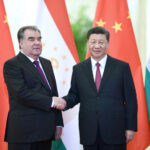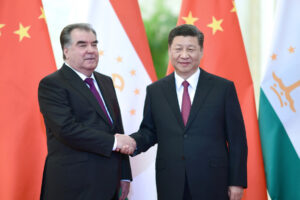Taiwan stands as the global epicenter of the semiconductor industry, with its unparalleled professional collaboration and a comprehensive supply chain contributing to a projected cumulative value that is set to reach an astounding 4.88 trillion New Taiwan Dollars (NTD) by 2022.
Taiwan’s Minister of Economic Affairs, Wang Mei-Hua, envisions this achievement as a means to propel Taiwan’s Gross Domestic Product (GDP) to rival other Asian industry giants such as Japan and Korea. “This will position Taiwan as the first country in East Asia to excel in terms of national income, alongside its status as the world’s second-largest semiconductor supplier,” she said as quoted from Taiwan Today, Friday, August 25, 2023.
According to a report by Al Jazeera cited on Kompas.com (April 3, 2022), Taiwan’s semiconductor industry acts as a robust defense against neighboring superpowers, notably China. Even the second most populous country continues to depend on Taiwan’s technological expertise to fuel its key industries, a factor that could potentially steer Taiwan’s GDP to new heights by 2035.
Analysts also underline Taiwan’s pivotal role as a supplier of semiconductors for cutting-edge technology products, including the iconic iPhone and the formidable F-35 fighter jet.
Taiwan’s achievements in the semiconductor industry are the result of diligent efforts by companies in integrated circuit (IC) design, manufacturing, assembly, and testing fields. These ongoing efforts continually enhance productivity, subsequently boosting market share and added value.
In recent years, the Taiwanese Government has honed its focus on developing and strengthening the resilience of the semiconductor industry’s supply chain. The objective is to establish Taiwan as a hub for advanced semiconductor manufacturing and a sophisticated center in Asia, while refining the ecosystem of this sector.
The semiconductor industry’s ecosystem is in a constant state of refinement through technological and talent development, alongside the enhancement of research and development (R&D) capabilities. These endeavors are anticipated to position Taiwan as the most comprehensive semiconductor industry base globally, serving as a platform for international talents to hone and harness their industry potential.
To captivate international talents with this gripping narrative, Taiwan’s local government has unfurled a trio of strategic policies and programs.
Firstly, the Foreign Professional Recruitment and Employment Act welcomes foreign professionals with streamlined visa processes, employment prospects, and comfortable living conditions. This policy extends its reach to families, ensuring access to insurance, favorable taxation, retirement benefits, and quality education.
Following suit, the International Academic-Industrial Exchange Alliance, orchestrated by Taiwan’s Ministry of Economic Affairs’ Industrial Development Bureau (IDB MOEA) in partnership with the Institute for Information Industry(III), creates a symphony of connectivity. Bridging industry requirements with academic resources, this alliance presents a trio of avenues for international talent recruitment: business matchmaking, thought-provoking seminars and projects, and formal education pathways.














